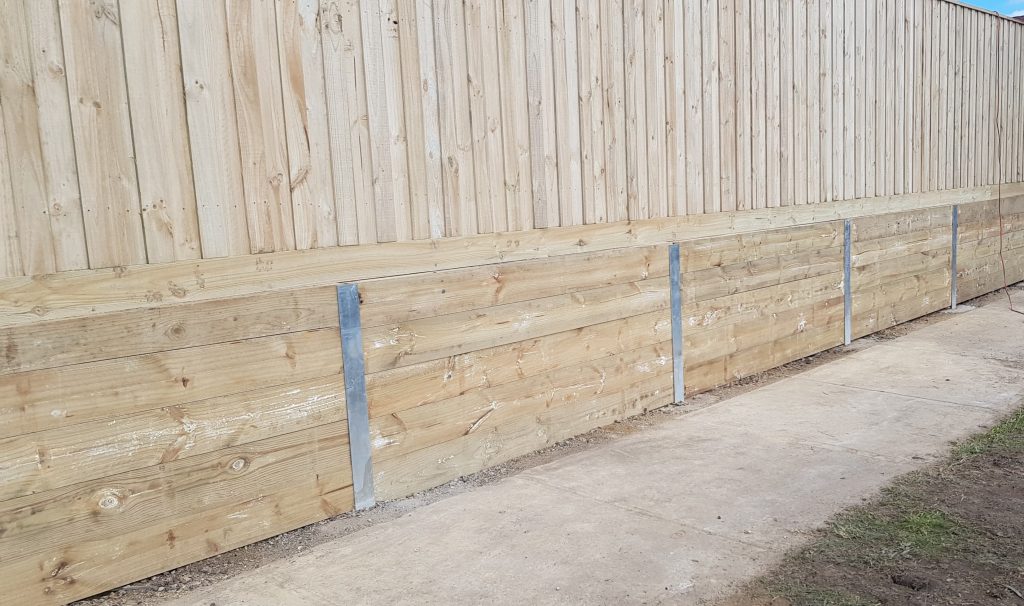Introduction
Building a retaining wall is no little task; it needs not only technical expertise however likewise the right tools to ensure that the job is executed flawlessly. Maintaining walls serve vital functions, such as preventing soil disintegration, managing water overflow, and developing level surface areas for landscaping. Whether you're dealing with timber sleepers, concrete sleepers, H beams, or other materials, having a well-equipped toolkit is vital for any professional home builder. In this thorough guide, we'll explore Essential Tools in a Professional Retaining Wall Home builder's Kit, detailing their functions and significance.
Essential Tools in a Professional Retaining Wall Contractor's Kit
To construct maintaining walls effectively, various tools are required to tackle various elements of the task. Let's break down these essential tools into classifications for a clearer understanding.
1. Determining Tools
1.1 Tape Measure
A measuring tape is your friend on any building and construction site. It permits you to take exact measurements of lengths and distances properly. When building a retaining wall, you require to measure the height and width of your proposed wall area meticulously.
1.2 Level
Ensuring that your wall is straight and even is important to its stability. A level assists you accomplish best alignment throughout construction.

1.3 Square
A framing square is important for making certain your corners are at ideal angles. This tool helps develop the appropriate design for your retaining wall.
2. Digging Tools
2.1 Shovel
A sturdy shovel is fundamental for digging trenches where the structure of the retaining wall will go. It can be used for both separating soil and getting rid of debris.
2.2 Post Hole Digger
If you prepare to set up posts or supports for your retaining wall (especially when utilizing timber sleepers or H beams), a post hole digger will make your life much easier.
3. Compacting Tools
3.1 Plate Compactor
Once you've removed the location for your foundation, it's crucial to compact the soil to prevent future settling concerns. A plate compactor can do this efficiently.
3.2 Hand Tamper
For smaller areas where heavy machinery can't reach, a hand tamper is ideal for compacting soil manually.
4. Cutting Tools
4.1 Circular Saw
When dealing with timber sleepers or cutting concrete blocks, a circular saw supplies precision cuts that fit perfectly together.
4.2 Chisel and Hammer
For fine changes or forming materials like concrete, having chisels on hand can prove useful.
5. Securing Tools
5.1 Drill/Driver
A power drill or chauffeur is essential if you're utilizing fasteners to secure wood sleepers or H beams together.
5.2 Hammer and Nails/Screws
Sometimes the old-fashioned method works best! A hammer and nails are essential when dealing with wood materials.
6. Security Equipment
6.1 Gloves
Safety first! Safeguarding your hands with sturdy gloves assists avoid injuries while working with sharp tools or rough materials.
6.2 Security Goggles
Your eyes are precious! Wearing safety goggles protects versus dust and debris while you're cutting or drilling materials.
7. Material Handling Equipment
Handling hefty concrete obstructs or wood sleepers can be challenging without correct equipment:
7.1 Wheelbarrow
Transporting materials around the website becomes uncomplicated with a wheelbarrow at hand.
7.2 Forklift
For bigger projects including heavy blocks or beams, using machinery like forklifts may be required to move products efficiently.
8. Water Management Tools
Managing water circulation around your retaining wall is important:
8. * Waterproofing Membrane *
Installing a waterproofing http://ricardoajmc728.raidersfanteamshop.com/leading-tips-for-discovering-a-reliable-retaining-wall-builder-near-you membrane helps protect against moisture penetration which could cause structural failure.
9. * Landscaping Equipment *
After building your retaining wall, landscape tools will assist improve the surrounding location:
- Rakes Trowels Spades
FAQs about Essential Tools in a Professional Retaining Wall Contractor's Kit
Q: What types of materials can I utilize for my maintaining wall?
A: Typically used materials consist of wood sleepers, concrete sleepers, stone blocks, and H beams depending on aesthetic choice and structural needs.
Q: Do I need unique training to operate all these tools?
A: While a lot of standard tools require very little training, complex machinery like forklifts might require accreditation or professional experience.
Q: How do I know how deep to dig my trench?
A: The depth depends upon a number of factors including regional frost lines and soil conditions; normally go for at least one-third of the overall height of the wall underground.
Q: Can I construct a retaining wall by myself?
A: Yes! With correct planning and tools from our list above, lots of DIY lovers effectively construct their own walls; nevertheless support may be handy for larger projects!
Q: How do I maintain my retaining wall after construction?
A: Regular evaluations for fractures or shifts must be performed together with ensuring drain systems remain unblocked over time!
Conclusion
Equipping yourself with the right tools is vital in any building task-- especially when it comes to constructing robust maintaining walls that withstand nature's tests gradually! From determining instruments like measuring tape and levels through essential digging devices such as shovels & & post hole diggers; each product plays an important function in ensuring success throughout every phase of advancement procedure included while respecting aesthetic appeals alongside functionality!
In summary, whether you're going with wood sleepers due their natural appeal or going with resilient concrete alternatives-- the obligation lies greatly on you as builders equipped effectively navigate complexities presented during this venture making notified options leading towards lasting results delighted in by customers alike!